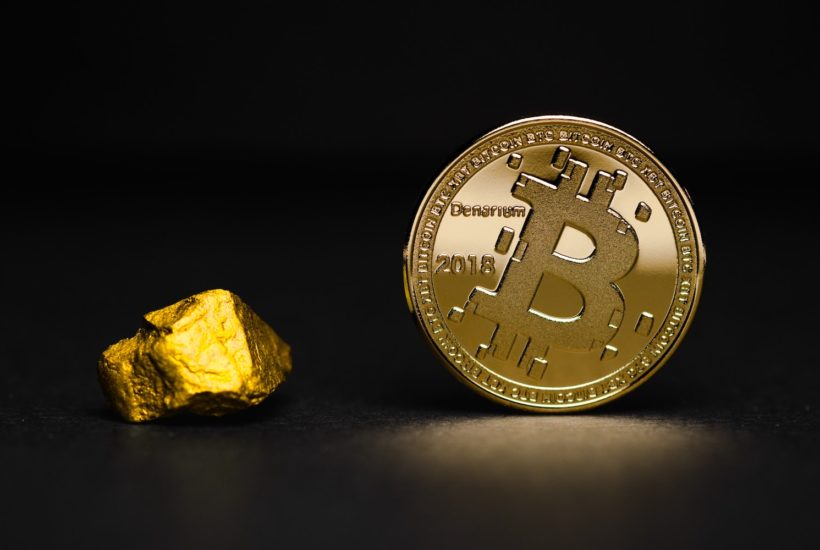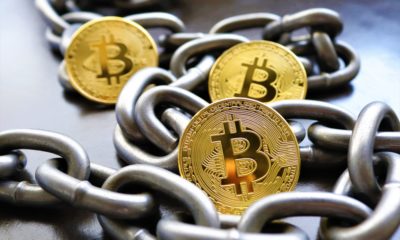Crypto
Is Bitcoin unsafe? – The biggest security problem of BTC
The debate over Bitcoin being unsafe may have an impact on its future and virtually all cryptosystems on the market. The price of Bitcoin is notoriously volatile. It can vary a lot from one moment to another and the oscillations are very large even from one day to the next. It depends on supply and demand and the market is still small compared to other currencies.

The heart of the Bitcoin network beats in the form of blocks created every 10 minutes on average. This has been the case for 10 years – successfully and without interruptions. The conclusion could be that Bitcoin is one of the most stable and secure networks of our time. During this time countless other networks had to struggle with problems, there were dozens of hacks on Exchanges, Bitcoin remained untouched.
By downloading the Born2Invest finance news application you will get unlimited access to all content on your device. Business subscribers benefit from additional advantages such as access to news in the cryptocurrency and financial sectors.
In this article let us devote ourselves to a – quite daring – thesis of the respected economist Nouriel Roubini. He has already described Bitcoin in the past as the “mother of all scams” and argued, among other things, that Bitcoin is unsafe. What exactly did he mean by this and how uncertain is BTC actually?
Bitcoin and its biggest security problem
Let’s start with the question of who exactly Nouriel Roubini is and his ‘relationship’ to Bitcoin. Roubini is a world-renowned economist and is often referred to as Doctor Doom. In addition to his work for the US Treasury and the International Monetary Fund (IMF), it was Roubini’s largely precise forecasts of the economic situation that made him famous.
In particular, Roubini predicted the bursting of the real estate bubble in the USA or the vehement national debt of Greece and its effects on the entire Eurozone. Even in our current times, Dr. Doom continues to warn of a major imminent economic collapse.
Roubini made a statement about Bitcoin at the end of 2018 and did not say a single good word. BTC is in his opinion the “mother of all scams.” Furthermore, Roubini used terms like “crypto intoxication” and called the bursting of the “Bitcoin bubble” at the end of 2017 a “crypto-bloodbath”. In his opinion, the entire crypto market and its success was due to “a few people with zero financial knowledge.”
Private keys as a security problem for BTC
While proponents of BTC would argue that Bitcoin is particularly secure precisely because of its asymmetric encryption methods, Roubini saw the exact opposite. His reasoning may sound absurd – but let’s listen to it. In the above-mentioned conversation with Arthur Hayes, the economist Roubini said the following: “If some stranger holds a gun to my temple and takes me to an ATM, he can only steal a few hundred or, at worst, thousands of dollars from me. Bitcoin, on the other hand, is completely unsafe. Instead of a clever financial system, it’s a system from the stone age.”
What’s Roubini driving at? – The answer is obvious: Bitcoin gives each individual the sovereignty, but also the full responsibility for his or her credit balance and wallet. The key to this credit balance is the Private Key. Any criminal who manages to obtain a person’s Private Keys immediately gains direct and full control over his assets.
Due to the irreversibility of the transactions in the Bitcoin blockchain, there is no possibility of recovering the BTC once it has been stolen. Roubini argues here that there are, after all, protective mechanisms in banks that would completely lack Bitcoin.
Be your own Bank: Chance or risk of BTC?
Just a few days ago, it was reported about an Irish drug dealer who will probably have to write off his 6000 Bitcoin, amounting to $57 million (€53 million), forever. Because the private keys, which he had stored in a rented house, were stolen. And from this moment on the full power of “No Keys – No BTC” takes effect.
There was a similar case in the Netherlands, where robbers dressed as police officers forced a Bitcoin trader to hand over his private keys using violence. There have also been similar incidents in India and Norway, where the perpetrators used torture to gain access to the victims’ private keys.
Lessons Learned: paper wallets and no bragging
Let us start with the Lessons Learned: Bitcoin is a pseudonym. It is not easy for attackers to find out who is behind an address. Let’s get to the “but”: Nevertheless, there are enough people who boast about their Bitcoin assets with great pride. So our first lesson learned is: Be modest and never give away your fortune in BTC. Don’t share with anyone your address where your assets are located.
The second lesson learned is that diversification wins. Spread your assets across multiple wallets. If the worst comes to the worst, you can protect yourself better and only lose a portion. Let’s get back to Roubini. Roubini is wrong with his statements.
The biggest safety problem of BTC is probably the human factor. However, Bitcoin is by no means less secure than a bank account – on the contrary: if you take good care of your Private Keys and follow the rules just mentioned, you are your own boss and don’t have to worry about your BTC being seized or a similar disaster happening.
__
(Featured image by Aleksi Räisä via Unsplash)
DISCLAIMER: This article was written by a third party contributor and does not reflect the opinion of Born2Invest, its management, staff or its associates. Please review our disclaimer for more information.
This article may include forward-looking statements. These forward-looking statements generally are identified by the words “believe,” “project,” “estimate,” “become,” “plan,” “will,” and similar expressions. These forward-looking statements involve known and unknown risks as well as uncertainties, including those discussed in the following cautionary statements and elsewhere in this article and on this site. Although the Company may believe that its expectations are based on reasonable assumptions, the actual results that the Company may achieve may differ materially from any forward-looking statements, which reflect the opinions of the management of the Company only as of the date hereof. Additionally, please make sure to read these important disclosures.
First published in CRYPTOMONDAY, a third-party contributor translated and adapted the article from the original. In case of discrepancy, the original will prevail.
Although we made reasonable efforts to provide accurate translations, some parts may be incorrect. Born2Invest assumes no responsibility for errors, omissions or ambiguities in the translations provided on this website. Any person or entity relying on translated content does so at their own risk. Born2Invest is not responsible for losses caused by such reliance on the accuracy or reliability of translated information. If you wish to report an error or inaccuracy in the translation, we encourage you to contact us.

-

 Cannabis1 week ago
Cannabis1 week agoAurora Cannabis Beats Expectations but Faces Short-Term Challenges
-

 Crowdfunding5 days ago
Crowdfunding5 days agoSavwa Wins Global Design Awards and Launches Water-Saving Carafe on Kickstarter
-

 Biotech2 weeks ago
Biotech2 weeks agoAsebio 2024: Driving Biotechnology as a Pillar of Spain and Europe’s Strategic Future
-

 Business9 hours ago
Business9 hours agoDow Jones Nears New High as Historic Signals Flash Caution
























